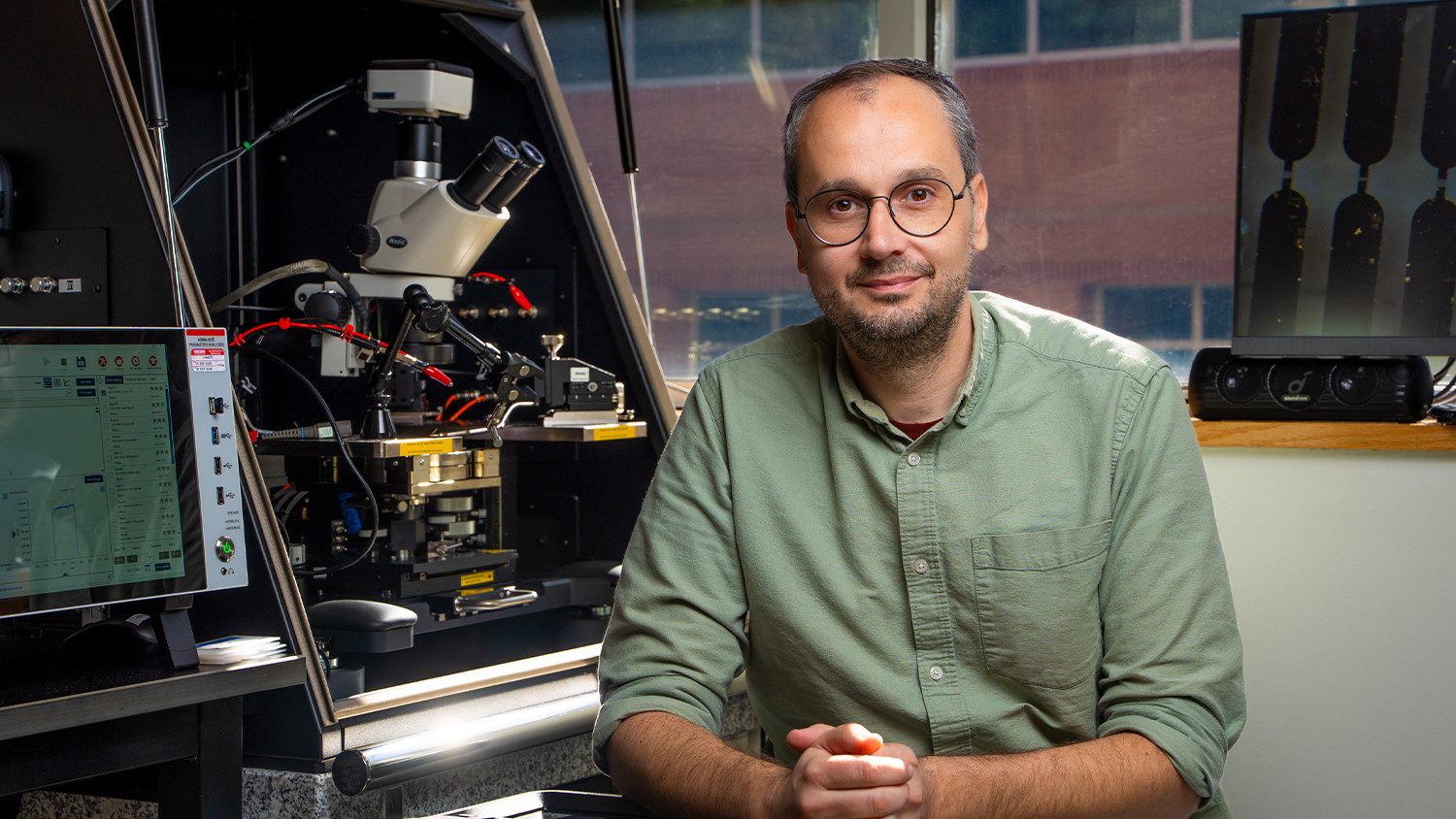
Paschalis Gkoupidenis Wins Sherwin I. Seligsohn Innovation Award
Congratulations to Paschalis Gkoupidenis, joint associate professor with #NCStateECE and the Department of Physics, on winning the inaugural Sherwin I. Seligson Innovation Award for his work in developing organic, brain-inspired electronics.
October 27, 2025 ![]() Giada Cavaliere
Giada Cavaliere
Congratulations to Paschalis Gkoupidenis, joint associate professor with the NC State Department of Electrical and Computer Engineering and the Department of Physics, on winning the inaugural Sherwin I. Seligsohn Innovation Award. Presented by Universal Display Corporation (UDC) – a global leader in OLED materials and technologies – the award was established to honor the legacy of the late Sherwin I. Seligsohn, UDC’s founder, and to recognize groundbreaking achievements in organic electronics. Gkoupidenis received the distinction for his pioneering work in developing organic brain-inspired electronics.
“It’s a true honor to be the first recipient of the Sherwin I. Seligsohn Innovation Award,” said Gkoupidenis. “Beyond the personal recognition, it’s a clear sign that organic neuromorphic electronics is gaining global visibility, and I’m especially grateful this comes from Universal Display Corporation.”
As part of the $75,000 award, Gkoupidenis will have the opportunity to present his research and represent NC State Engineering in a lecture at UDC’s headquarters in Ewing, New Jersey.
Brains, Machines and Intelligent Electronics
At NC State, Gkoupidenis and his research group explore how the brain processes and manages information to inspire new kinds of electronics that can learn, adapt and interact naturally with living systems. This bio-inspired approach with organic neuromorphic electronics offers a powerful framework to better understand the brain’s efficiency, and to translate that understanding into radically more efficient and intelligent electronics.
“What makes organic electronics fascinating is not just that they realistically mimic biology, but that they open up a new material language to efficiently communicate with biology using exactly what biology uses to carry information: ions, electrolytes, neurotransmitters and biomolecules,” said Gkoupidenis. “Organic electronics enable devices and circuits that can learn, adapt, evolve and interface in a natural way with biological systems.”
This kind of groundbreaking research requires a truly multidisciplinary approach – where electronics, biology, neuroscience, materials science, physics and chemistry are combined to create a new field of electronics.
In a 2024 perspective in Nature Reviews Materials, Gkoupidenis outlined a roadmap for scaling these technologies across many domains, where organic neuromorphic electronics can be a platform for next-gen computing, biosensing, biocomputing and human-machine interfacing.
Gkoupidenis and his fellow researchers’ work not only embodies NC State’s reputation for innovation, but also inspires the next generation of engineers to think beyond conventional methods to address complex global challenges.
“Organic neuromorphic electronics stands to become the electrochemical keyboard and monitor of tomorrow’s biointegrated technologies – where the very boundary between electronics and biology dissolves. This could give rise to a new era of seamless, sentient biointerfaces and will perhaps redefine our relationships with living organisms.”
Gkoupidenis, a native of Greece, has a B.Sc. in physics from the University of Ioannina (‘05), an M.Sc. in microelectronics from the University of Athens (‘07) and a Ph.D. in materials science and engineering from the National Center for Scientific Research, “Demokritos”, in Athens (‘14). He joined NC State in 2024 as part of the Chancellor’s Faculty Excellence Program in the Carbon Electronics Cluster.
